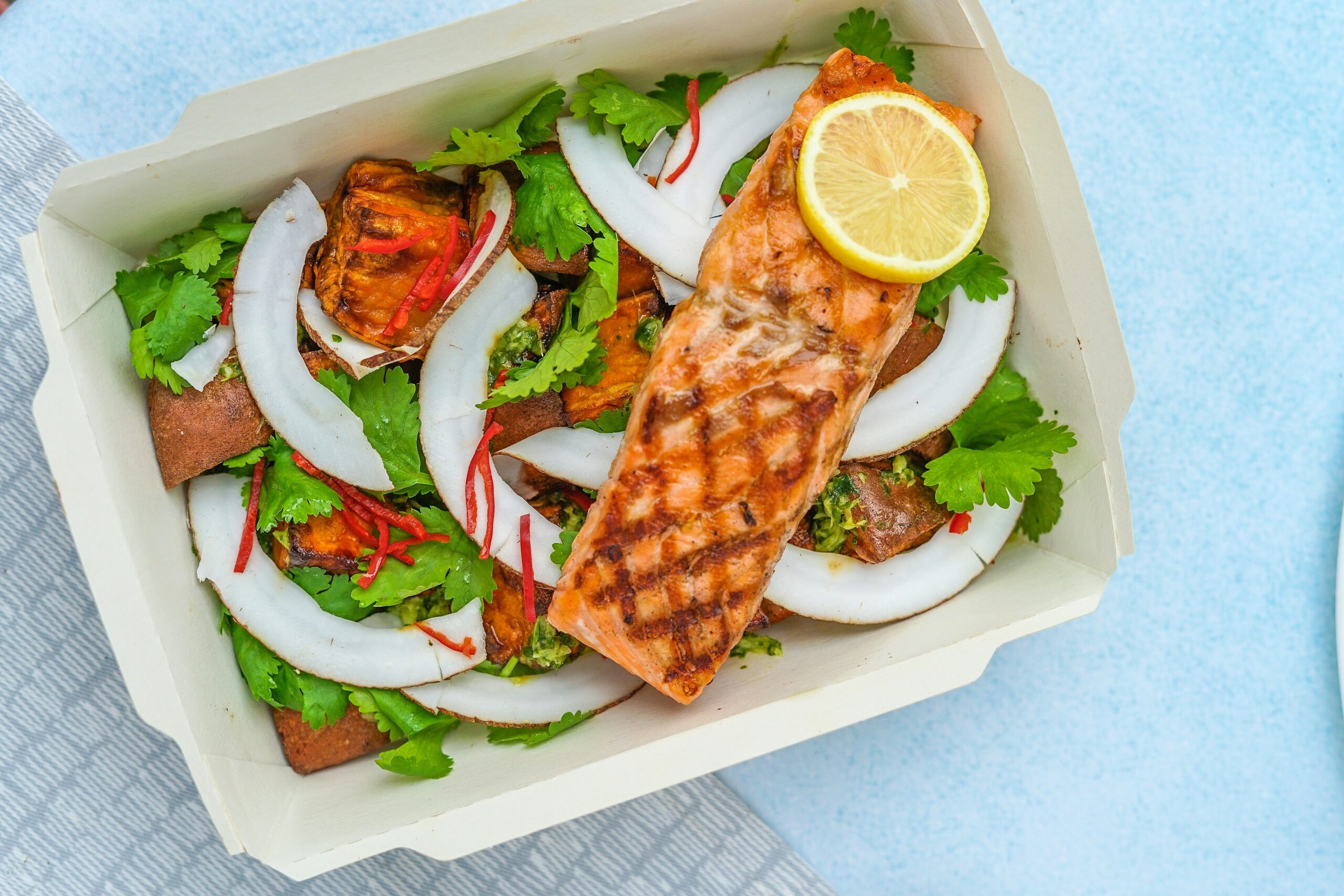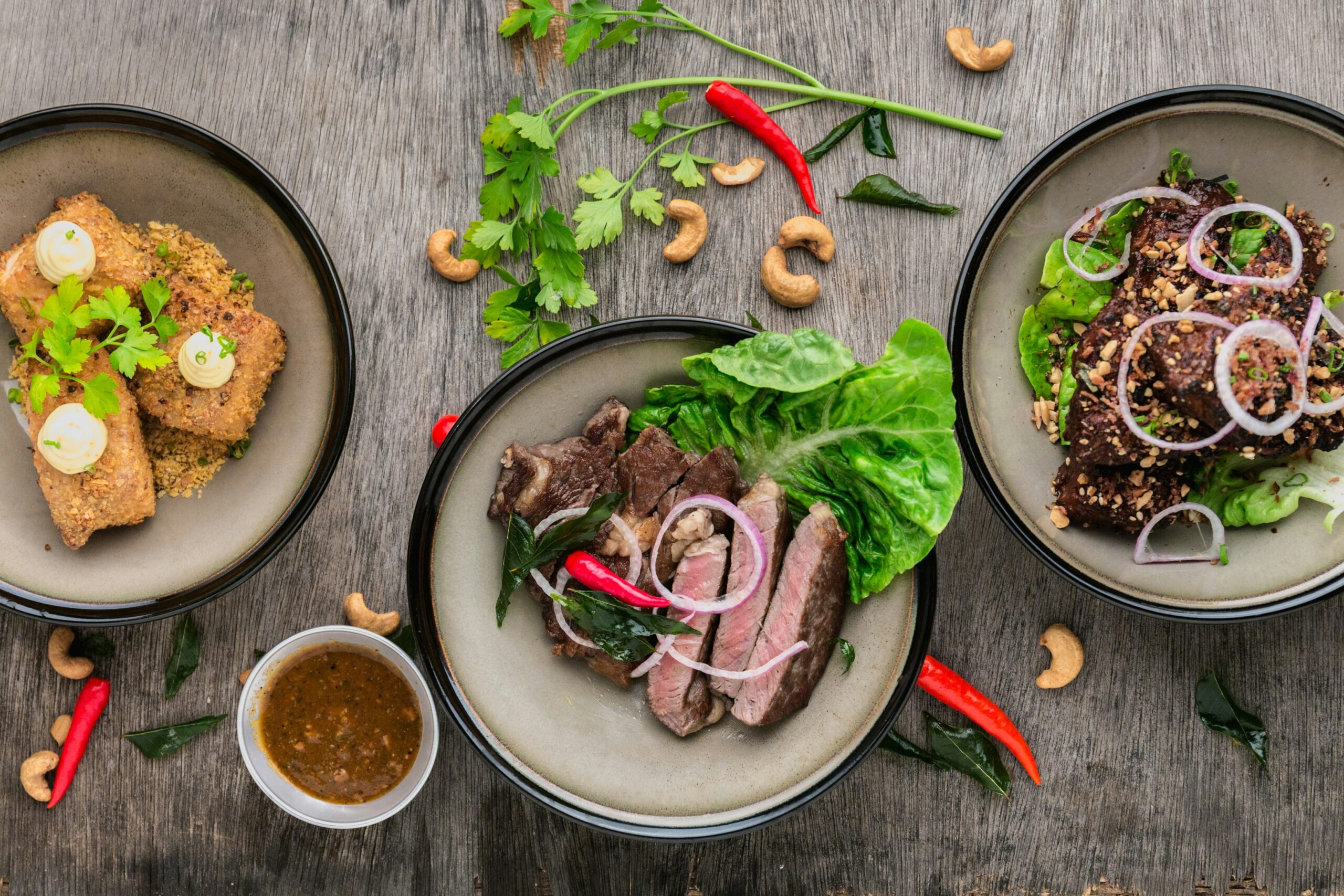Looking for a keto-friendly, delicious beverage to kickstart your morning? Look no further! Starting your day on a ketogenic diet doesn’t mean sacrificing tasty options for breakfast. In this article, we’ll explore a range of refreshing and nourishing drinks that are perfectly suited for a keto lifestyle. From creamy bulletproof coffee to energizing matcha lattes, we’ve got you covered with easy-to-follow recipes and suggestions that will satisfy your taste buds while keeping you in ketosis. So, get ready to revitalize your mornings with these fantastic options that will make you say goodbye to sugary traditional breakfast drinks and hello to a healthy, flavorful start to your day!
Understanding the Ketogenic Diet
The basics of the ketogenic diet
The ketogenic diet, also known as the keto diet, is a low-carb, high-fat diet that has gained popularity for its potential health benefits. The main idea behind the keto diet is to shift your body’s primary source of energy from carbohydrates to fats. By drastically reducing your carbohydrate intake and increasing your fat intake, your body enters a metabolic state called ketosis. In ketosis, your body produces ketones, which are molecules that serve as an alternative fuel source for your brain and body.
The role of carbs, proteins, and fats
Carbohydrates, proteins, and fats are the three macronutrients that provide the body with energy. However, on the ketogenic diet, the proportions of these macronutrients are significantly different compared to a typical diet. Carbohydrates are limited to a minimal amount, usually around 5-10% of your daily calorie intake. This restriction forces your body to rely on fat for energy instead.
Proteins play a crucial role in the keto diet, as they provide essential amino acids that support muscle growth and repair. However, it’s important to moderate protein intake as excessive protein can potentially be converted into glucose through a process called gluconeogenesis, which can hinder ketosis.
Fats, on the other hand, become the primary source of energy in a ketogenic diet. Consuming healthy fats, such as avocados, nuts and seeds, olive oil, and coconut oil, is essential to maintain ketosis and provide sustained energy throughout the day.
How the body uses ketones for energy
When you restrict carbohydrates on a ketogenic diet, your body starts breaking down fats into molecules called ketones through a process called ketogenesis. Ketones can cross the blood-brain barrier and are used as an alternative fuel source by the brain. This shift in energy metabolism can have several benefits, such as improved mental clarity, increased energy levels, and enhanced fat burning.
Nutritional Needs for Breakfast on Keto
Why breakfast is crucial on a ketogenic diet
Breakfast is often considered the most important meal of the day, and this holds true even on a ketogenic diet. Eating a balanced keto breakfast provides your body with the necessary nutrients and energy to kickstart your day. It helps stabilize blood sugar levels, prevents overeating later in the day, and fuels your body for optimal cognitive and physical performance.
Key nutrients needed in a ketogenic breakfast
A healthy ketogenic breakfast should include a combination of fats, proteins, and low-carbohydrate vegetables. Healthy fats, such as avocados, coconut oil, or olive oil, provide sustained energy and help keep you feeling full. Including high-quality sources of protein, such as eggs, bacon, or smoked salmon, supports muscle growth and repair. Low-carbohydrate vegetables, like spinach or kale, are rich in vitamins, minerals, and fiber.
Effects of skipping breakfast on Keto
Skipping breakfast on a ketogenic diet can have various effects on your body. It may lead to increased hunger and cravings throughout the day, potentially causing you to consume more carbohydrates than desired. It can also affect your energy levels and mental clarity, making it harder to stay focused and productive. Additionally, skipping breakfast may result in nutrient deficiencies if you fail to meet your daily macronutrient and micronutrient needs.

Coffee and Keto
Coffee’s place in the ketogenic diet
Coffee is a popular beverage worldwide, enjoyed by many individuals at breakfast. Fortunately, coffee can also be a part of a ketogenic diet when consumed in a keto-friendly manner. However, it’s important to note that not all coffee options are suitable for keto, as additives like sugar or flavored syrups can significantly increase carbohydrate intake.
How to make keto-friendly coffee
To make keto-friendly coffee, opt for black coffee or use sugar-free sweeteners, such as stevia or monk fruit, to add a touch of sweetness. You can also incorporate a dash of heavy cream or unsweetened almond or coconut milk to enhance the flavor and provide healthy fats. Bulletproof coffee, a popular keto coffee option, involves blending coffee with grass-fed butter and MCT oil to create a rich and creamy beverage.
Potential benefits and drawbacks of coffee on keto
Coffee has several potential benefits on a ketogenic diet. It can help boost metabolism, increase fat burning, and enhance mental focus and alertness. Coffee also contains antioxidants that offer potential health benefits. However, it’s worth noting that excessive caffeine consumption can cause side effects such as jitteriness, increased heart rate, and disrupted sleep. It’s important to listen to your body and consume coffee in moderation.
Teas Suitable for Keto
Types of teas compatible with the ketogenic diet
Tea is a fantastic keto-friendly beverage option that can be enjoyed in various flavors and forms. Some teas that are compatible with the ketogenic diet include green tea, black tea, herbal teas such as peppermint or chamomile, and teas infused with healthy fats like bulletproof tea. These teas are naturally low in carbohydrates and can be consumed hot or cold.
Benefits and drawbacks of these teas
Teas have several potential benefits on a ketogenic diet. Green tea, for example, is rich in antioxidants and may aid in fat metabolism. Herbal teas can have calming effects and promote relaxation. Additionally, teas can help increase hydration levels and provide an alternative to sugary or high-carbohydrate beverages.
However, it’s important to be aware of the potential drawbacks. Some teas, such as certain herbal blends or flavored teas, may contain hidden carbohydrates or artificial sweeteners. It’s essential to read labels or prepare homemade teas using natural, keto-friendly ingredients to avoid unwanted carbohydrates.
How to prepare keto-friendly teas
Preparing keto-friendly teas is simple and can be done in various ways. Start with high-quality tea leaves or bags, and steep them in hot water for the appropriate period. You can experiment with different flavors and herbs to enhance the taste. To add healthy fats to your tea, consider infusing it with a small amount of coconut oil or adding a dollop of heavy cream. Avoid sweeteners or use natural keto-friendly sweeteners sparingly.

Keto Breakfast Smoothies
Ingredients for a keto-friendly smoothie
Keto-friendly smoothies can be a delicious and convenient option for breakfast. To create a balanced smoothie on a ketogenic diet, include a base of low-carbohydrate vegetables like spinach or kale. Add healthy fats such as avocado or coconut oil for creaminess and sustained energy. Incorporate a source of protein, such as unsweetened protein powder or Greek yogurt, and blend with unsweetened almond or coconut milk for a smooth texture.
How to prepare a ketogenic breakfast smoothie
Preparing a ketogenic breakfast smoothie is quick and straightforward. Start by adding your chosen low-carbohydrate vegetables to a blender. Next, add your desired healthy fats, protein source, and liquid base. Blend until smooth and creamy, adjusting the consistency by adding more liquid if needed. You can also customize your smoothie by incorporating keto-friendly add-ons like chia seeds, nut butter, or low-carbohydrate berries for added flavor and nutrients.
Storage and serving suggestions
Keto breakfast smoothies are best enjoyed fresh, as they tend to lose their texture and flavor when stored for an extended period. However, if you need to save time in the morning, you can pre-portion your smoothie ingredients and freeze them in individual bags. When ready to enjoy, simply blend the frozen ingredients with liquid for a quick and refreshing breakfast. Serve your smoothie in a glass or a bowl, and consider topping it with additional toppings like nuts or seeds for added crunch and nutritional value.
Homemade Keto Drinks
Recipes for homemade ketogenic drinks
Homemade keto drinks offer a fantastic way to meet your nutritional needs while enjoying a refreshing and flavorful beverage. Here are a few recipes that you can try:
-
Keto Lemonade: In a pitcher, combine freshly squeezed lemon juice, water, a keto-friendly sweetener like stevia, and a pinch of salt. Stir well and serve over ice for a refreshing drink.
-
Matcha Latte: In a small saucepan, heat unsweetened almond milk or coconut milk over medium heat. Whisk in matcha powder and a keto-friendly sweetener. Pour into a mug and enjoy the rich and vibrant flavors.
-
Keto Hot Chocolate: In a saucepan, heat unsweetened almond milk or coconut milk. Add unsweetened cocoa powder, a keto-friendly sweetener, and a dash of vanilla extract. Whisk until smooth and creamy. Serve hot and indulge in the decadent chocolatey goodness.
Nutritional value of these drinks
Homemade keto drinks can be packed with beneficial nutrients while keeping carbohydrates in check. Lemonade made with natural sweeteners provides a refreshing dose of vitamin C. Matcha latte offers antioxidants and a gentle caffeine boost, while keto hot chocolate satisfies your chocolate cravings without the guilt. These drinks can be tailored to your taste preferences and nutritional needs by adjusting the ingredients accordingly.
Tips for quick preparation
Preparing homemade keto drinks can be quick and convenient with a few simple tips:
- Keep your pantry stocked with keto-friendly sweeteners, such as stevia or erythritol, for easy flavor enhancement in your beverages.
- Invest in a quality blender or frother to make the preparation process easier and more efficient.
- Pre-portion your ingredients, such as lemon juice or matcha powder, into ready-to-use containers for quick and effortless drink preparation.
- Experiment with different combinations of flavors and ingredients to find your favorite homemade keto drinks.

Keto-Friendly Juice Options
How fruit juice can fit in a keto diet
Fruit juice can be challenging to incorporate into a ketogenic diet due to its high sugar content. Most fruit juices are packed with natural sugars, which can quickly kick you out of ketosis. However, certain fruits are lower in carbohydrates and can be sparingly used to create keto-friendly juice options.
Fruits that are low in carbs
If you’re looking to include fruit juice in your ketogenic diet, it’s crucial to choose fruits that are low in carbohydrates. Some examples of low-carb fruits that can be used in moderation include berries (such as strawberries, blueberries, or raspberries), lemons, limes, and avocados. These fruits offer natural sweetness and can be combined with other keto-friendly ingredients to create flavorful and refreshing juice options.
How to make fresh, homemade juice
Making fresh, homemade juice on a ketogenic diet requires careful selection of ingredients and portion control. Start by choosing low-carb fruits like berries or citrus fruits as your base. Blend or juice the fruits, and if desired, add a splash of water or unsweetened almond or coconut milk to achieve your preferred consistency. You can also experiment with adding herbs or spices like mint or ginger to enhance the flavor profile. Remember to consume homemade fruit juice in moderation to stay within your daily carbohydrate limits.
Dairy and Non-Dairy Options on Keto
Role of dairy in a ketogenic diet
Dairy products can be an excellent source of healthy fats and essential nutrients on a ketogenic diet. However, it’s important to choose high-quality, full-fat dairy products and monitor your intake, especially if you’re sensitive to lactose or following a strict ketogenic protocol. Dairy options like cheese, butter, and heavy cream are low in carbohydrates and can be consumed in moderation to add flavor and richness to your meals.
Options for those who are lactose-intolerant or vegan
If you’re lactose-intolerant or following a vegan ketogenic diet, there are several non-dairy alternatives available. Unsweetened almond milk, coconut milk, or cashew milk can be used as substitutes for traditional dairy milk. These alternatives provide a creamy texture and can be used in various keto-friendly recipes, including smoothies, coffee, and baked goods. Additionally, dairy-free butter substitutes made from plant-based oils or coconut oil are available for those who need an alternative to traditional butter.
How to choose keto-friendly milk alternatives
When choosing keto-friendly milk alternatives, it’s essential to check the labels for added sugars, fillers, and unnecessary additives. Opt for unsweetened versions of almond milk, coconut milk, or cashew milk that have minimal carbohydrate content. Look for products made with clean ingredients and minimal processing. Homemade nut or seed milks can also be a great option, as they give you control over the ingredients and allow for customization according to your taste preferences.
Energizing Keto Breakfast Drinks
How these drinks can give you a morning energy boost
Energizing keto breakfast drinks are designed to provide you with a burst of energy to kickstart your day. These drinks typically include ingredients that are rich in healthy fats and quality protein, which can provide sustained energy throughout the morning. The combination of healthy fats, such as coconut oil or MCT oil, and protein sources like collagen peptides or whey protein, helps stabilize blood sugar levels and prevents energy crashes.
Recipes and preparation techniques
Here are a few energizing keto breakfast drink recipes to try:
-
Keto Bulletproof Coffee: Brew a cup of coffee and blend it with 1-2 tablespoons of grass-fed butter and 1 tablespoon of MCT oil or coconut oil. This creamy and frothy coffee provides a long-lasting energy boost.
-
Keto Matcha Protein Shake: In a blender, combine unsweetened almond or coconut milk, matcha powder, a scoop of protein powder, a tablespoon of almond butter, and a handful of spinach. Blend until smooth and enjoy a vibrant and nutritious shake.
-
Sunrise Keto Smoothie: Blend unsweetened coconut milk, frozen berries, a scoop of collagen peptides, a tablespoon of chia seeds, and a handful of spinach. This antioxidant-rich smoothie will help you start your day on a colorful and energetic note.
Effects on appetite and satiety
Energizing keto breakfast drinks can help control appetite and promote feelings of satiety throughout the morning. The combination of healthy fats, proteins, and fiber from ingredients like chia seeds or spinach helps keep you feeling full and satisfied. This can prevent unnecessary snacking or overeating later in the day, supporting your overall ketogenic diet goals.
Avoiding Common Mistakes
Missteps to avoid when choosing a keto breakfast drink
When choosing a keto breakfast drink, it’s important to avoid common mistakes that could hinder your progress on the ketogenic diet. Some key missteps to avoid include:
-
Choosing drinks with hidden carbohydrates: Many commercial beverages, even those marketed as “healthy” or “low-sugar,” can still contain hidden carbohydrates. It’s essential to carefully read labels and check for added sugars, artificial sweeteners, or high-carbohydrate ingredients.
-
Ignoring portion sizes: Even on a ketogenic diet, portion control matters. Consuming excessive quantities of keto-friendly drinks can still lead to excess calorie intake, hindering your weight loss or health goals. Be mindful of serving sizes and adjust your consumption accordingly.
-
Overlooking hydration: Hydration is crucial on a ketogenic diet, and it’s easy to overlook the importance of water when focusing on beverages like coffee, tea, or smoothies. Remember to drink plenty of water throughout the day to stay adequately hydrated and support your overall wellness.
How to read labels for hidden carbs
To avoid hidden carbohydrates in your breakfast drinks, it’s essential to know how to read labels effectively. Start by checking the total carbohydrate content per serving and identify the source of those carbohydrates. Look for added sugars, as well as sugar alcohols, which can also impact blood sugar levels. Pay attention to the ingredient list and be cautious of sneaky ingredients like different forms of sugar, corn syrup, or artificial sweeteners.
Evaluating the impact of artificial sweeteners
Artificial sweeteners can be a controversial topic in the world of keto, as they are zero or low in calories but can potentially affect blood sugar levels and insulin response. While artificial sweeteners may be considered safe in moderation, some individuals may experience side effects like digestive issues or cravings. It’s important to listen to your body and experiment to find the sweeteners that work best for you. Natural sweeteners like stevia or monk fruit may be preferred alternatives for those looking to avoid artificial options.
In conclusion, understanding the ketogenic diet is crucial before diving into different breakfast drink options. Knowing the basics of the diet, the role of macronutrients, and how the body uses ketones for energy allows you to make informed choices about what to consume. Whether you opt for coffee, tea, smoothies, or homemade drinks, there are plenty of keto-friendly options available to kickstart your morning and support your overall health and well-being. Remember to focus on whole, nutrient-dense ingredients, monitor your portion sizes, and listen to your body’s unique needs to ensure a successful and enjoyable ketogenic breakfast experience. Cheers to a delicious and satisfying keto breakfast!

